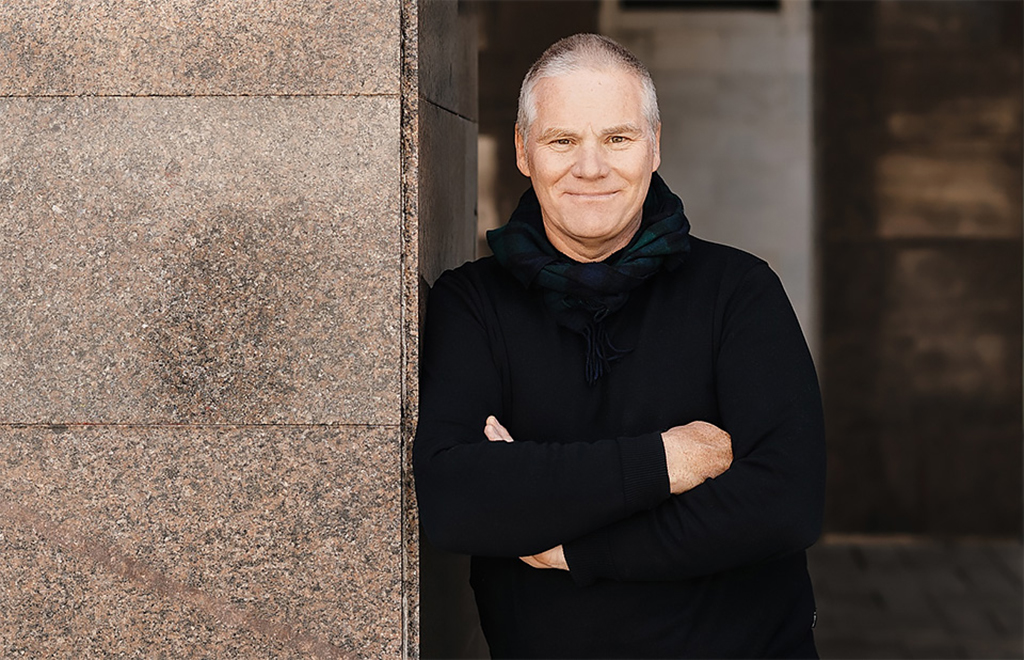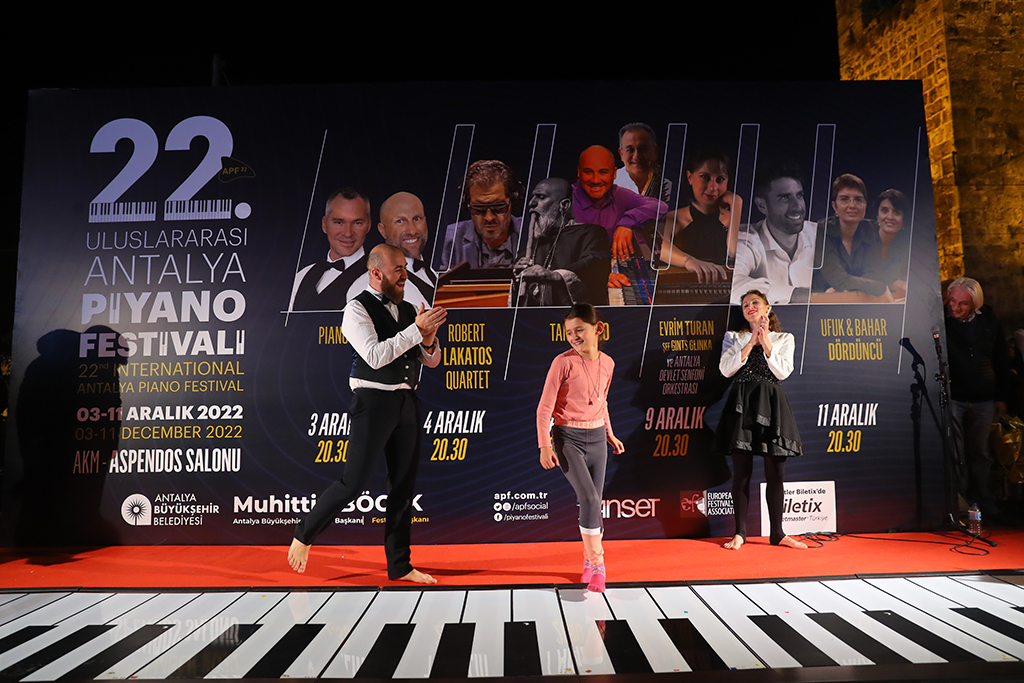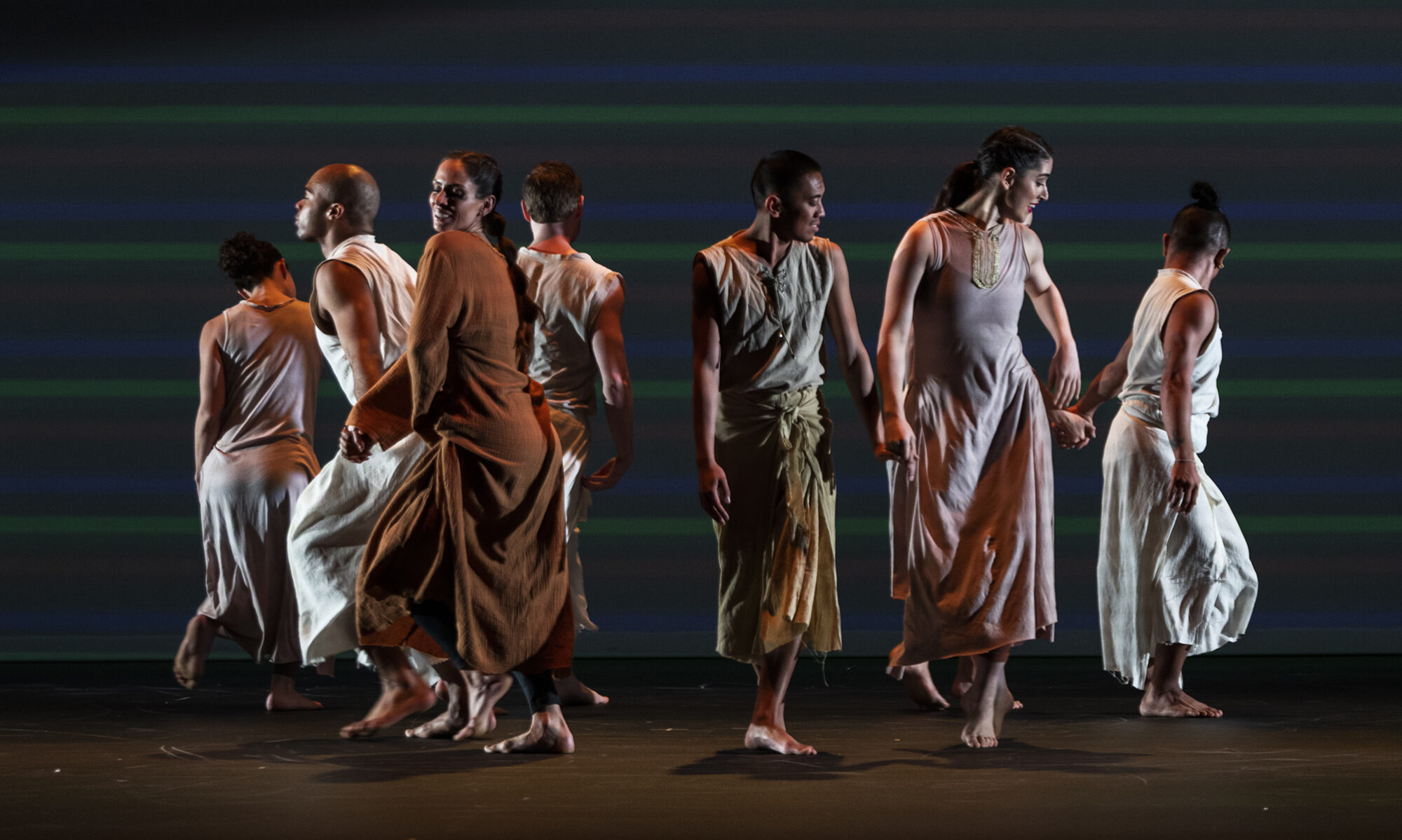Festivals are the decentralised and irreplaceable spaces for imagining the unimaginable. If they did not exist, we would have to re-invent them

Chris Baldwin is known widely for Teatro de Creacion and Citizen-Centred Dramaturgy – approaches to making large-scale performances designed for a place, about that place and made in deep collaboration with the people of that place. He specialises in directing large-scale events for live audiences and also in hybrid performances for TV & digital broadcast. He directed the opening weekends for several European Capital of Culture in recent years – Greece, Lithuania, and Poland. He was the artistic director of the ECoC Ireland 2020 and a Cultural Coordinator for Piran, Slovenia. He also directed two large-scale performances as part of the 2012 London Olympics. Chris is an advisor to cities and rural spaces wishing to develop cultural policies. The University of Kent awarded his PhD and his articles, books and plays have been published in various languages. He regularly teaches and speaks at different European universities and is a qualified permaculture designer.
www.chrisbaldwin.eu
We live in capitalism, its power seems inescapable – but then, so did the divine right of kings. Any human power can be resisted and changed by human beings. Resistance and change often begin in art. Very often in our art, the art of words. Ursula K. Le Guin.*
There are moments in moist love when heaven is jealous of what on Earth we can do. Hafiz.
Let us start with Fungi.
Fungi are everywhere. They are above and below, inside and outside of each one of us moving through moist networks. They eat everything from rock to flesh. They are in space. They are visible and invisible. Life without them is inconceivable. Plants only learned to survive out of water around 500 million years ago because they learned to collaborate with fungi. In fact, the more we learn about fungi the more we can conclude that we have been unwitting participants in a large-scale intellectual heist for most of the last one hundred years or so. For now, we know that there is more than one kind of growth on the planet we share.
When the European Festivals Association met in Peralada in April 2023 we agreed that business did not necessarily mean capitalism. The word business could simply mean finding a way to organise common activity. And cultural business could therefore be a way to organise common cultural activity. But business does also mean capitalism.
Of course, capitalism holds to the mantle of ‘never-ending growth’ as the sacred aim of human presence on this planet. If we stop growing our economy the argument goes, our activity, and in turn we, shrink; we become diminished – our horizons decrease. Yet festival directors, artists, managers, and audiences alike, know that the space of our field, our festival city, our planet is limited to that fence, that self-regulating ecosystem of mutual support systems; the water and power and sewage systems we provide to support our activity needs to remain in balance with the need of those who require access to those resources. But when droughts, raging fires, glacier melts, mass extinctions, ecosystem collapses, and degradation of human-rights advances are upon us we know we have reached that fence parameter.
Festivals are social outliers – and we should remain there in my opinion. We are, by definition, decentralised in comparison to many other societal institutions. We sit both outside and inside the capitalist economy. Centralised systems are renowned for firing out targets from the centre. Yet this creates a culture of demand and respond. You demand, I respond. You want growth – we give you growth; you want efficiency of supply, we provide it… whatever the cost. Yet the cost is devastating.
Decentralisation, or in other words the festival, creates space outside of the demand and respond culture, outside of its concept of never-ending growth. As a result, a decentralised organisation such as a festival can create room and motivation for innovation, new thinking, to allow us to imagine a beyond-growth cultural and human landscape. For at its simplest, cultural activity must be about thinking and feeling the exact opposite of what we take for normal. Festivals are the decentralised and irreplaceable spaces for imagining the unimaginable. If they did not exist, we would have to re-invent them.
Let us, for a moment, draw a graph of artists and cultural practitioners’ engagement in the politics of the environment throughout the twentieth century and into the twenty first. Such a graph would resemble a chart of greenhouse emissions with a few dramatic upsurges. For example, the industrial and chemical impact of the First World War also led to a significant increase in the number of artistic projects, poetry and literature which addressed this catastrophe. But then something strange occurs. The chart of greenhouse emissions radically diverges from the chart of associated artistic and cultural output. Despite artistic engagement in so many political and progressive causes in the 20th century, cultural and artistic work seems to remain dislocated, disinterested even, in the catastrophe on our very doorstep. Is it because we became utterly enchanted with the world-wide modernist project, our move to the cities and its mission to make life free of the ecological realities imposed upon us by the size of our metaphorical field? But now those endless droughts in Spain, those fires around Athens and Sidney, those floods in Bangladesh, those degradations of human-rights advances, that global pandemic which smashed into our lives, are all upon us. Even the fungal structures holding our very ecosystem together are threatened.
There is plenty of evidence that in the last decade this divergence between cultural practices and engagement in the politics of the environment has begun to decline. We are aware that trying to maintain two paths at the same time, in favour of limitless economic growth and GDP figures on the one hand and the Paris agreement on carbon emission targets on the other, is simply incompatible. Our festivals and our cultural work must take a long hard look at our participation in the fact that the EU is not even on track to meet its Paris carbon emission targets. Our cultural activities are simply part of the planetary plunder if we are not contributing towards the culture of a beyond-growth economy. And far from diminishing our ambitions such a realisation holds extraordinary creative and organisational opportunities.
The novelist Amitav Ghosh** makes the case that there is no more vital task for artists than to create a space for apocalyptic thinking as a way of delaying, if not averting, the climate horrors we must now confront. Festivals of every kind have the responsibility to look for ways in which trust can be built with audiences, spectators, participants, artists, indeed all citizens, for these conversations and imaginative endeavours to take place. Culture does not shape the climate, but it undoubtedly shapes the climate debate. And this is not only where artistic creations are important but so too the policies and management methodologies we use alongside. While scientists explore the mechanics and the data of climate change it is social scientists who show why people support or reject their conclusions. Festivals and artistic activity have a role here as we build the transformative stories which can help humanise the implications of the data.
As humans we all tend to develop world views consistent with the values held by others within the groups with which we self-identify. Festival organisers have loyal audiences which self-identify with our values. So how can we ensure they reflect and adopt the values which will help us tackle our common future well-being on our planet? Since the beginning of time, we artists have created and written the stories and myths which reinforce or question our notions of identity, and by implication our world views. We can help our societies understand what is at stake now. We can place our weight behind the need for transformation at every level of our relationship with the environment through our programming, our methodologies, our ambitions. The alternative is that we will be part of some disguising mechanism. Our stories, our management styles, our festival policies are not neutral innocents.
As we need to imagine a beyond-growth economy and its associated beyond-growth cultural framework, we could begin by developing our new beyond-growth cultural and festival lexicon embedded in the word mycorrhizal. We need to imagine a mycorrhizal culture, a mycorrhizal economy, a mycorrhizal inspired lexicon. The Greek Mykes means fungus – everywhere, strong, flexible, shapeshifting, inside and out, resilient. Rhiza means root; embedded, enriched, connected. Like the whole of the natural world for millions of years before we existed, we share networks of communication, collective destiny, and mutual well-being. That cultural mycorrhizal lexicon for beyond-growth needs writing by festivals.
* www.theguardian.com/books/2014/nov/20/ursula-k-le-guin-national-book-awards-speech
** The Great Derangement, Amitav Ghosh
Festival Life creates shared moments of audiences and artists, eye-to-eye


